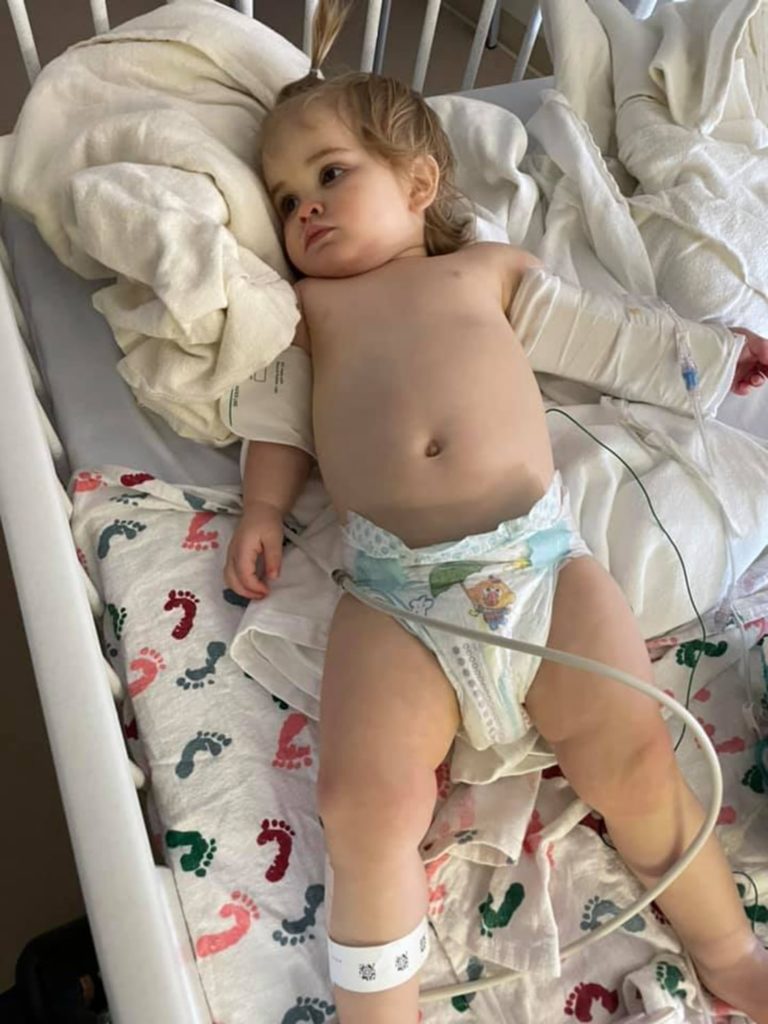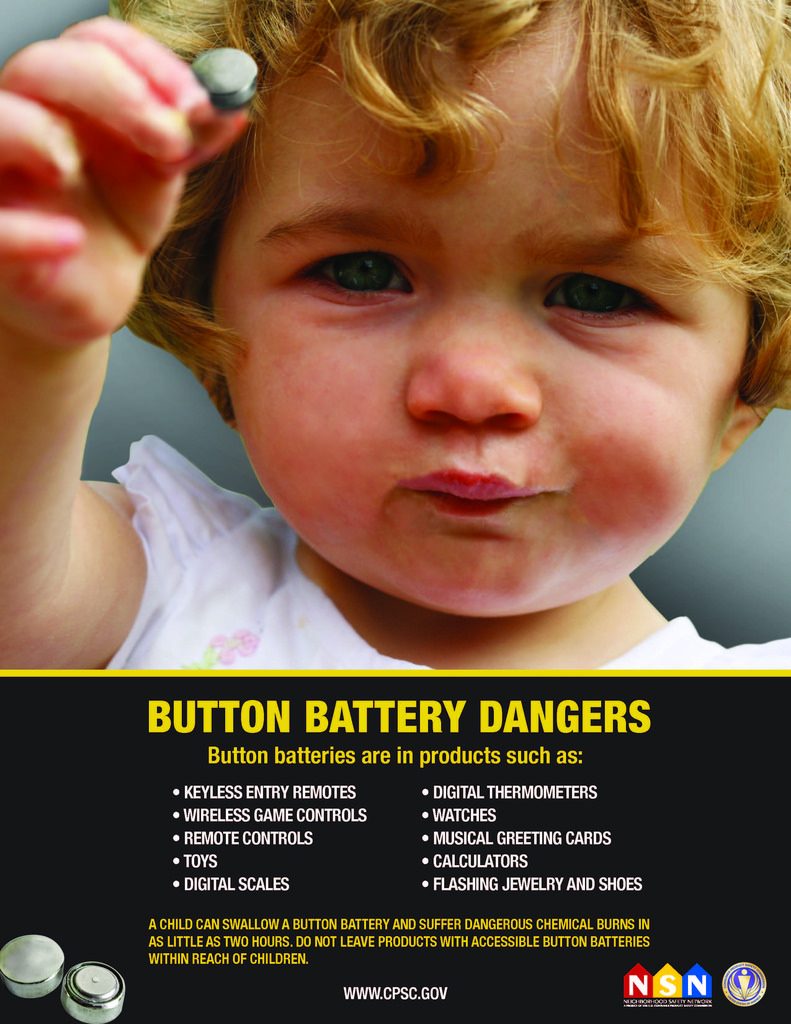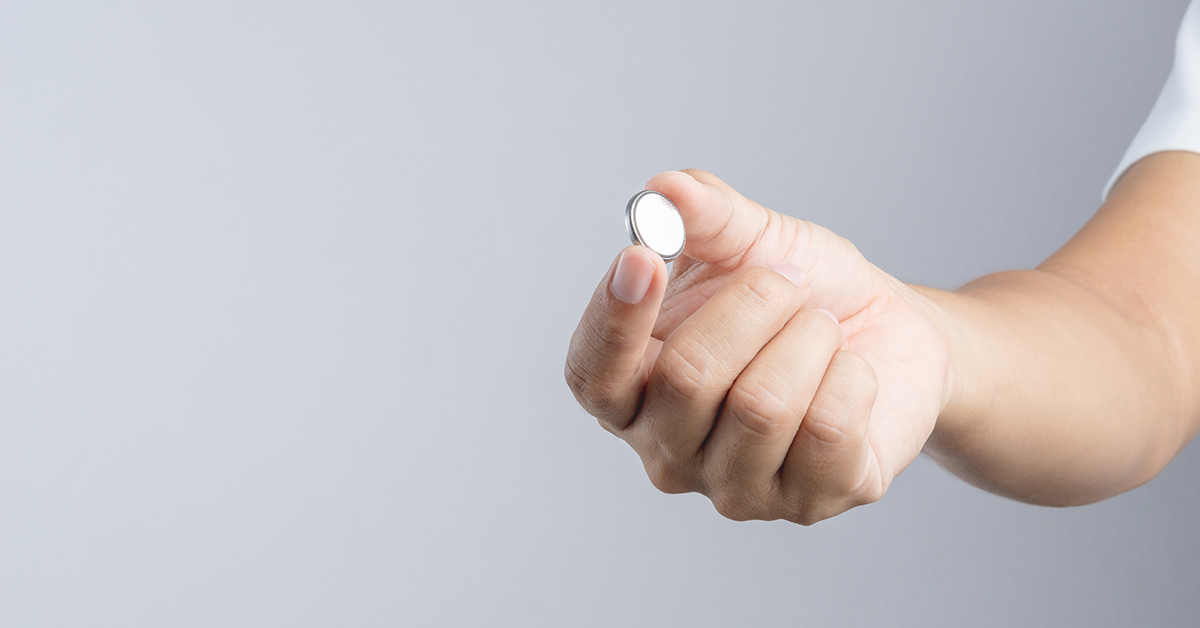Parents do their absolute best to protect their children from harm. Children, however, are mischievous, inquisitive by nature, and can get into things easily without their parents even knowing. This is exactly what happened to baby Reese, who died at just 18 months old after ingesting a button battery. Her mother is now telling her daughter’s story in order to spread awareness of the dangers of button batteries. She hopes to advocate for change to protect other children from the same tragedy.
Reese’s Story
In October 2020, Trista Hamsmith’s 17-year-old daughter Reese began wheezing. Trista took her to the doctor to find out what was wrong. Reese was a bit congested, so the doctor said it was likely a simple croup. He prescribed her some medication and told them to come back Monday if it didn’t get better. (1)
Not long after, Trista noticed that a battery – one of the small, button batteries – was missing from the television remote. Immediately she was concerned that her baby girl had gotten ahold of it somehow and swallowed it. She rushed Reese off to the emergency room. An x-ray scan quickly confirmed that Trista’s instinct was correct.
The doctors rushed her baby girl off to surgery to remove the battery. Not long after, Reese was discharged to go home. She was okay for a few days, however, soon after her condition began to decline again.
They went back to the hospital only to find out that the little button battery had burned a hole through Reese’s trachea. Now, there was a passageway – called a fistula – between her trachea and her esophagus. This meant that both food and air were going in places that they didn’t belong.

The Beginning Of Many Operations
The doctors quickly installed a feeding tube, sedated her, and put her on a ventilator in order to breathe. By early December, doctors decided to do surgery to repair the fistula. Then one day then decided to take Reese off the ventilator. At first, she did great. Then, a little while later, she nearly lost her.
“I heard them say, ‘Starting compressions,’ and she was gone for about eight to ten minutes,” she said. “We were able to get her back. Ultimately they said she wasn’t strong enough yet.”
The doctors tried again later to wean Reese off the ventilator without much success. They instead decided to perform a tracheotomy to help her breathe again. Three days after the surgery, however, the little girl began struggling yet again. The doctors did everything they could, including CPR for more than half an hour, but nothing worked. On December 20, 2020, Reese died at just 18 months old.
Read: Fire Safety Tips for Preventing House Fires, from the Laundry Room to the Kitchen
The Dangers Of Button Batteries
Batteries of any kind are dangerous for children, as well as some elderly and pets. Unfortunately, they are used more and more frequently in many common household electronics and appliances. If ingested, they can cause incredible damage and, as we know, even death. (2)
“If you get a narrow, flat, pancake-like button battery that gets stuck at one of these natural narrowings, then the front wall of the esophagus collapses against the button battery and the back wall,” said Durkin, medical director of children’s surgery at Helen DeVos Children’s Hospital in Grand Rapids, Michigan. “(This) completes that circuit, and electric current actually flows through the esophageal tissues. And when that happens, it starts to kill the tissues at the burn.”

Read: Frightening image is a reminder to parents about avoiding blue swimwear for kids
This can happen extremely quickly, even just in the matter of a few hours. It is of utmost importance that items that use these batteries are far out of children’s reach. If you notice that one is missing, don’t wait until your child shows symptoms. By the time they do, it can likely already be too late.
While most small button batteries pass through the digestive system without issue, it’s the ones that are penny-sized or larger that cause the real threat. These are the ones small enough to be swallowed but large enough to get stuck in the throat and burn a hole through the esophagus. Signs and symptoms that your child has swallowed a button battery include (3):
- coughing or noisy breathing
- chest pain or grunting
- drooling or vomiting
- gagging or choking
- bleeding or discharge
- unexplained food refusal, fever or vomiting
- nose bleeds: sometimes this can be blood vomited through the nose
- bleeding from the gut: black or red vomits or bowel motions.
If you have any reason to believe that your child may have swallowed a button battery of any size, go to the hospital immediately. (4)
Reese’s Purpose
Out of the tragedy of losing Reese, Trista founded the Reese’s Purpose Foundation. The goal of the organization is to advocate for children’s safety and the things that threaten it in our everyday lives. Naturally, their primary focus is on button batteries. They aim to educate parents but also to lobby policymakers to create laws that prevent these accidents from ever occurring. Several things they are working on include (5):
- Mandating secure battery compartments for all devices that require a button or coin battery
- Developing and bringing a safer battery to the market
- Increasing education of parents and medical professionals of the signs and symptoms of button battery ingestion, as it is often misdiagnosed until after significant damage has happened.
They plan on shifting focus to other child safety issues once they have achieved their goals. In the meantime, they want to remind parents to be vigilant surrounding the items in their homes that contain these batteries. Just a few seconds of extra work placing them out of children’s reach can save a life.
If you would like to sign a petition to help pass button battery legislation, you can do so HERE.
Keep Reading: Parents warned over dangers of your children wearing winter coat inside cars
Sources
- “Her daughter swallowed a button battery and died. Now this mom is taking action.” Today.Meghan Holohan. March 1, 2021.
- “CPSC Warns: As Button Battery Use Increases, So Do Battery-Related Injuries and DeathsToddlers and Seniors Most Often Injured in Battery-Swallowing Incidents.” CPSC. March 23, 2011.
- “Button batteries – why they’re dangerous and what you can do to keep your kids safe.” Health
- “Batteries Cause Devastating Injuries.” Poison
- “Every extraordinary person has a certain mission that they are called to fulfill.” Reeses Purpose

